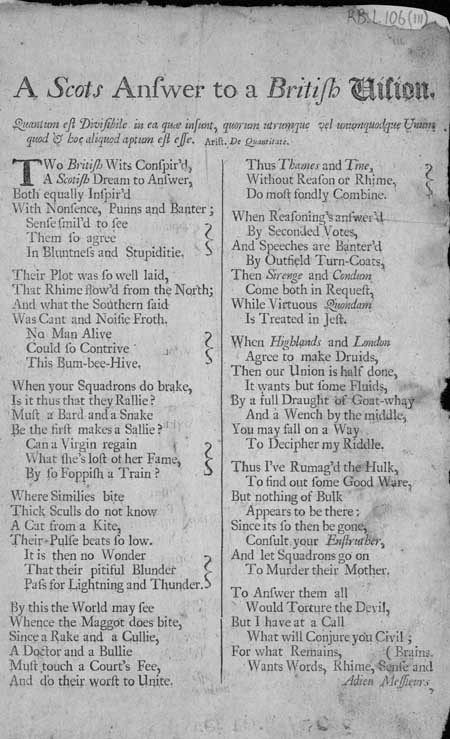Commentary
Verse 1: 'TWO British Wits Conspir'd, / A Scottish Dream to Answer, / Both equally Inspir'd / With Nonsence, Punns and Banter; / Sense smil'd to see / Them so agree / In Bluntness and Stupiditie.' The broadside carries no date and no place of publication. This scathing attack on the proposed union of the Scottish and English parliaments is believed to have been written by John Hamilton, Lord Belhaven (1656-1708) in response to Daniel Defoe's work 'The Vision' (1706), which extolled the idea of union. Defoe (1660-1731) worked in Scotland as an unofficial agent of the English government, gauging response to the talk of union and also, to some extent, trying to sell the idea. The Act of Union was eventually ratifed in 1707 despite the opposition of Belhaven and other Scots politicians. In the 1720s, the Scottish poet Allan Ramsay (1686-1758) published a pastiche of Defoe's 'The Vision'. Early ballads were dramatic or humorous narrative songs derived from folk culture that predated printing. Originally perpetuated by word of mouth, many ballads survive because they were recorded on broadsides. Musical notation was rarely printed, as tunes were usually established favourites. The term 'ballad' eventually applied more broadly to any kind of topical or popular verse.
View Transcription | Download PDF Facsimile
|
 |
Probable date published:
1706-1707 shelfmark: RB.I.106(111)
 View larger image
View larger image
|


